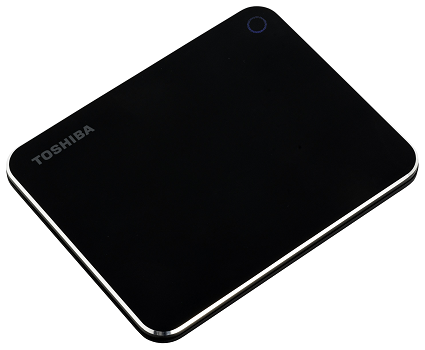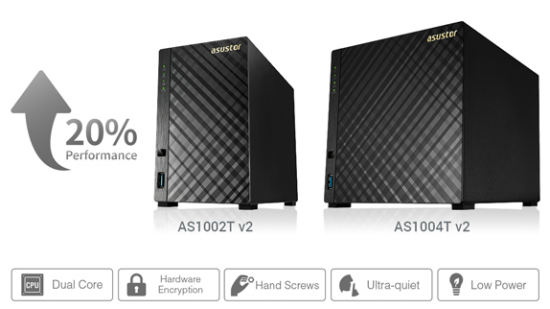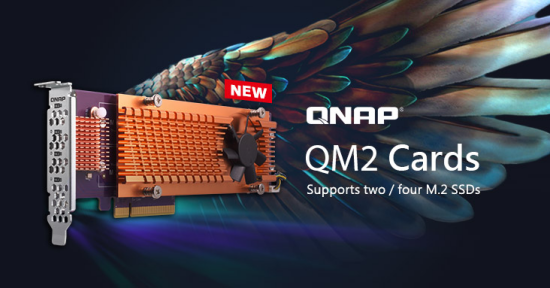- Details
- Flash Memory
NGD Systems, Inc., the leader in computational storage, today announced the general availability (GA) of the 16 terabyte (TB) Catalina-2 U.2 NVMe solid state drive (SSD). The Catalina-2 is the first NVMe SSD with 16TB capacity that also makes available NGD’s powerful “In-Situ Processing” capabilities. The Catalina-2 does this without impact to the reliability, quality of service (QoS) or power consumption, already available in the current shipping NGD Products.

The use of Arm® multi-core processors in Catalina-2 provides users with a well-understood development environment and the combination of exceptional performance with low power consumption. The Arm-based In-Situ Processing platform allows NGD Systems to pack both high capacity and computational ability into the first 16TB 2.5-inch form factor package on the market. The NGD Catalina-2 U.2 NVMe SSD only consumes 12W (0.75W/TB) of power, compared to the 25W or more used by other NVMe solutions. This provides the highest energy efficiency in the industry.
Add a comment- Details
- Flash Memory
Toshiba Memory America, Inc. (TMA), the U.S.-based subsidiary of Toshiba Memory Corporation, today announced that its XS700 Series of portable solid state drives (SSDs) is now available. A small, sleek, stylish, ruggedized, external SSD, the XS700 brings the portable performance that today’s digital lifestyles demand – backed by the technical expertise of the company that invented NAND FLASH memory.

Working with large media files such as 4K video and high-resolution images typically requires more speed than a portable hard drive can provide. The XS700 is a faster, more durable alternative – reaching speeds of up to 4.5 times faster than traditional spinning disk storage. Built with Toshiba Memory Corporation’s in-house 3D flash memory, 64-layer BiCS FLASH™, the XS700 is state-of-the-art portable storage for content creators, photographers and other consumers seeking maximum performance, excellent reliability and quick access to their data on the go.
Add a comment- Details
- Flash Memory
Kingston Digital, Inc., the Flash memory affiliate of Kingston Technology Company, Inc., a world leader in memory products and technology solutions, today announced its DCP1000 and forthcoming DCU1000 PCIe NVMe solid-state solutions are helping drive needed efficiencies, increased productivity and reducing time-to-market for 4K+ episodic television, feature films, boutique commercial companies, virtual production applications and more. Recently deployed in a studio production environment, Kingston PCIe NVMe gave production, postproduction and media and entertainment (M&E) professionals the ability to work in 4K-to-8K capture workloads in real time, with 8x sustained IO improvements in media review and ingest; 6X reductions in lab ingestion to SAN, and an overall reduction in on-set idle time via maximum throughput to VFX, HDR or postproduction. Kingston will demonstrate the supercharged data performance of its powerful DCP1000 and DCU1000 solid-state products at the 2018 Cine Gear Expo this week (booth B101) at The Studios at Paramount.

“With modern content creators capturing across multiple formats such as Dolby Vision™, digital 65mm, VistaVision, and VRX Arrays, an urgency for a connection-proofed, high-performance solution is paramount,” said Dane Brehm, ICG DIT and Production Technologist. “Deploying both the Kingston DCP1000 and DCU1000 PCIe NVMe SSDs allowed our production to significantly increase on set-to-lab productivity of our original 6K camera RAW files to the lab for color processing, QC, LTO archive and upload. Kingston’s ultra-fast PCIe NVMe SSD storage solutions are designed for extreme data performance for mission-critical and performance-demanding ultra high-resolution raw media and VFX workloads. Both DCP1000 and DCU1000 are helping drive needed efficiencies in the virtual production space, increasing productivity and reducing time to market for high-quality multimedia content with significant creative and technical improvements for modern productions."
Add a comment- Details
- Network Storage
QNAP Systems, Inc. (QNAP) today released the new QWA-AC2600 wireless adapter that can provide increased flexibility in NAS deployment and potential NAS applications. The QWA-AC2600 is a 2.4/5 GHz dual band dual concurrent (DBDC), 4 x 4 multi-user MIMO (MU-MIMO) PCI Express (PCIe) wireless adapter, equipped with two Qualcomm QCA9984 NICs, that supports speeds up to 2533 Mbps.

Joan Hsieh, Product Manager of QNAP, said, "The QWA-AC2600 wireless adapter can turn Ubuntu/Linux PCs or compatible QNAP NAS into wireless access points or base stations, providing more flexibility in usage and more potential applications. Multiple QWA-AC2600 adapters can be installed into a single Ubuntu/Linux PC or QNAP NAS for flexible deployments and performance expansions without the clutter of network cables."
Add a comment- Details
- Network Storage
ASUSTOR Inc. today has announced two new NAS devices will be released; the AS1002T v2 and AS1004T v2. These new models are upgraded versions of the AS1002T and AS1004T and uses an upgraded CPU now at 1.6GHz, providing better read and write performance than the previous generation. In addition, the hard disk controller has been redesigned to allow a hard drive capacity of up to 12TB.

ASUSTOR product manager Johnny Chen said: “Compared to the previous generation, the write performance of the AS10 v2 series has increased by more than 20%, providing home users with a smoother and faster storage experience. In addition, ASUSTOR offers a number of energy-saving designs in protect the environment and save money. The NAS also can hibernate all day almost without consuming power, making it suitable for users who need a NAS for the long-term to create their own dedicated backup solution."
Add a comment- Details
- Network Storage
Synology Inc. today announced the official release of DiskStation Manager (DSM) 6.2, delivering a more reliable, efficient and secure NAS experience. The new Advanced LUN, iSCSI Manager, and Storage Manager provide professional users with a stable and powerful data protection solution.

“Eight months ago we released our DSM 6.2 beta program, with over 71,000 downloads, and received valuable feedback from users. In DSM 6.2, we focus on the stability and performance of new features." said Derren Lu, CEO of Synology Inc. "In the meantime, we took tens of thousands of hours testing on hundreds of machines to make DSM more stable and provide better IT management flexibility in every respect. Synology NAS do not just serve as network storage devices, but they provide a powerful and wide range of application services for business."
Add a comment- Details
- Flash Memory
 ADATA Technology, a leading manufacturer of high-performance DRAM modules, NAND Flash products, and mobile accessories today launched a new addition to its range of portable storage devices, the ADATA UV240 USB Flash drive. It features a convenient flip cap with a quick-slide mechanism to offer effortless cap removal while also doing away with the potential for misplacing the cap. The UV240 works in USB 2.0, comes in white/blue, black and red, and features capacities ranging from 8GB to 64GB.
ADATA Technology, a leading manufacturer of high-performance DRAM modules, NAND Flash products, and mobile accessories today launched a new addition to its range of portable storage devices, the ADATA UV240 USB Flash drive. It features a convenient flip cap with a quick-slide mechanism to offer effortless cap removal while also doing away with the potential for misplacing the cap. The UV240 works in USB 2.0, comes in white/blue, black and red, and features capacities ranging from 8GB to 64GB.
No More Misplaced Caps with Flip-Cap Design
Sporting a flip-cap design with a quick-slide mechanism, the UV240 has one less part to potentially misplace. The flip-cap design not only prevents users from losing the cap, it also allows it to be easily opened with a flick of a thumb. This simple yet intuitive design helps make the UV240 very satisfying to use on the go.
Lanyard Hole for Easy Carrying and Adding Personal Flair
Like most ADATA USB Flash drives, the UV240 has a lanyard hole for securing it to a lanyard, strap, keychain or other attachments for easy carrying and adding personal flair. This feature further boosts the UV240’s portability and reduces the chances of it being misplaced.
- Details
- Network Storage
QNAP Systems, Inc. has extended the lineup of QM2 PCIe expansion cards with new models that support up to four M.2 SSDs slots on a single card. QM2 cards support either M.2 SATA SSDs or M.2 PCIe NVMe SSDs to enable SSD caching for boosted IOPS performance or to form an auto-tiering volume for optimal storage performance. QM2 cards also allow QNAP NAS users to maximize both storage capacity and performance by installing M.2 SSDs without occupying any 3.5-inch drive bays.

“When faced with a performance bottleneck, the random read/write speed of the hard drives in a NAS is one of the decisive performance factors,” said Joan Hsieh, Product Manager of QNAP, continuing “QM2 cards can greatly boost the performance of QNAP NAS with PCIe slots, while the flexible configuration of SSD caching and I/O-aware Qtier all helps multiply NAS performance.”
Add a comment- Details
- Flash Memory
Toshiba Memory Corporation (TMC) today announced that it decided to start construction of a new state-of-the-art fab for BiCS FLASH, its proprietary 3D flash memory, in Kitakami, Iwate prefecture in July this year.
TMC has selected Kitakami City as the next location to expand its operations in September last year, and has started preparations for construction of the new fab. Demand for 3D flash memory is increasing significantly on fast growing demand for enterprise SSD for datacenters and servers. TMC expects continued strong growth in the mid and long term, and the timing of its construction positions it to capture this growth and expand its business.
The new fab will be completed in 2019, and will have a quake absorbing structure and an environmentally friendly design that includes the latest energy saving manufacturing equipment. It will also introduce an advanced production system that uses artificial intelligence (AI) to boost productivity. Decisions on the new fab’s equipment investment, production capacity and production plan will reflect market trends. TMC expects to continue its joint venture investments based on discussion with Western Digital in the new facility.
Add a comment- Details
- Flash Memory
Micron Technology, Inc. and Intel Corporation today announced production and shipment of the industry's first 4bits/cell 3D NAND technology. Leveraging a proven 64-layer structure, the new 4bits/cell NAND technology achieves 1 terabit (Tb) density per die, the world's highest-density flash memory.
The companies also announced development progress on the third-generation 96-tier 3D NAND structure, providing a 50 percent increase in layers. These advancements in the cell structure continue the companies' leadership in producing the world's highest Gb/mm2 areal density.
Both NAND technology advancements—the 64-layer QLC and 96-layer TLC technologies —utilize CMOS under the array (CuA) technology to reduce die sizes and deliver improved performance when compared to competitive approaches. By leveraging four planes vs the competitors' two planes, the new Intel and Micron NAND flash memory can write and read more cells in parallel, which delivers faster throughput and higher bandwidth at the system level.
The new 64-layer 4bits/cell NAND technology enables denser storage in a smaller space, bringing significant cost savings for read-intensive cloud workloads. It is also well-suited for consumer and client computing applications, providing cost-optimized storage solutions.
Add a comment
